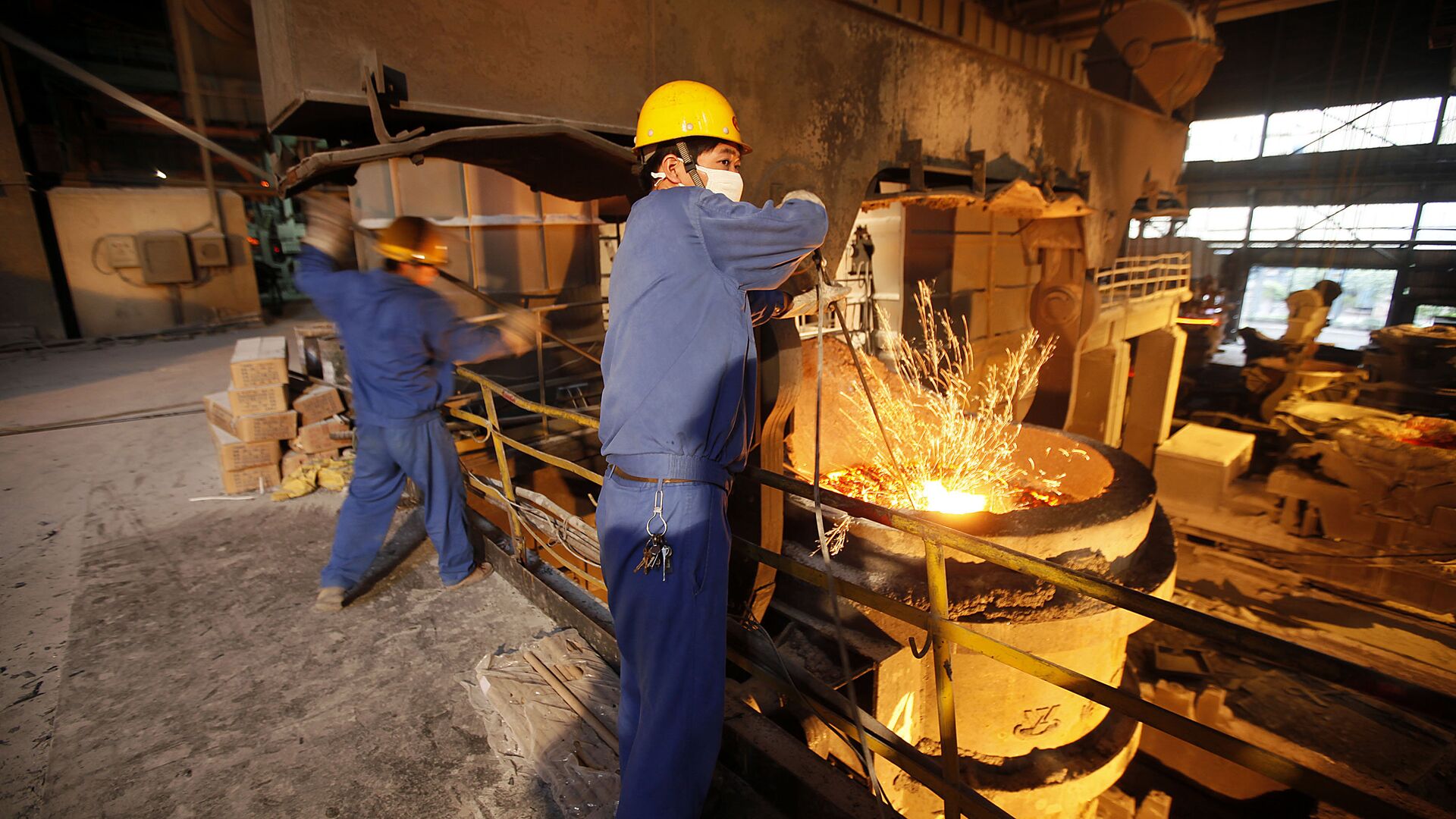https://sputnikglobe.com/20221206/beijing-opposes-possible-us-eu-plans-to-impose-new-tariffs-on-chinese-steel-1105096843.html
Beijing Opposes Possible US, EU Plans to Impose New Tariffs on Chinese Steel
Beijing Opposes Possible US, EU Plans to Impose New Tariffs on Chinese Steel
Sputnik International
BEIJING (Sputnik) - China opposes the introduction of unilateral tariffs that do not benefit anyone, including possible plans of the United States and the... 06.12.2022, Sputnik International
2022-12-06T10:44+0000
2022-12-06T10:44+0000
2023-04-12T17:04+0000
economy
us
china
steel
european union (eu)
https://cdn1.img.sputnikglobe.com/img/105744/95/1057449543_0:156:3001:1844_1920x0_80_0_0_a75f3ad4c964cf4f1c040e74d9d33d7e.jpg
"China has always opposed violations of the WTO [World Trade Organization] rules and unilateral imposition of illegal tariffs that do not benefit anyone," the spokeswoman told a press briefing, commenting on the media report.Beijing will take all necessary measures to protect its legitimate rights and interests, Mao added.Earlier in the day, Bloomberg reported, citing people familiar with the situation, that Western countries were considering imposing new tariffs on Chinese steel and aluminum. The initiative reportedly targets China — the world's largest carbon emitter — and other major polluting countries.The imposition of tariffs on China through the authority began in 2018, when the administration of then US President Donald Trump hiked tariffs on certain Chinese imports in a bid to balance the bilateral trade deficit. Both countries exchanged several rounds of reciprocal tariffs the following year.In January 2020, the Trump administration and the Chinese government signed a two-year trade deal known as Phase One. Under the agreement, Washington retained 25% tariffs on Chinese goods worth about $250 billion per year and 7.5% tariffs on goods worth $120 billion. China, in turn, pledged to purchase $75 billion worth of US industrial goods, $50 billion worth of energy, $40 billion worth of agricultural products and up to $40 billion in services.President Joe Biden has kept the tariffs in place after taking office.During the ongoing China-US trade war, the EU has also imposed tariffs on some Chinese aluminum and steel products, provoking Beijing's discontent.
china
Sputnik International
feedback@sputniknews.com
+74956456601
MIA „Rossiya Segodnya“
2022
Sputnik International
feedback@sputniknews.com
+74956456601
MIA „Rossiya Segodnya“
News
en_EN
Sputnik International
feedback@sputniknews.com
+74956456601
MIA „Rossiya Segodnya“
Sputnik International
feedback@sputniknews.com
+74956456601
MIA „Rossiya Segodnya“
beijing, us, eu, impose new tariffs, chinese steel
beijing, us, eu, impose new tariffs, chinese steel
Beijing Opposes Possible US, EU Plans to Impose New Tariffs on Chinese Steel
10:44 GMT 06.12.2022 (Updated: 17:04 GMT 12.04.2023) BEIJING (Sputnik) - China opposes the introduction of unilateral tariffs that do not benefit anyone, including possible plans of the United States and the European Union to impose new duties on Chinese steel and aluminum, Chinese Foreign Ministry spokeswoman Mao Ning said on Tuesday.
"China has always opposed violations of the WTO [World Trade Organization] rules and unilateral imposition of illegal tariffs that do not benefit anyone," the spokeswoman told a press briefing, commenting on the media report.
Beijing will take all necessary measures to protect its legitimate rights and interests, Mao added.
Earlier in the day, Bloomberg reported, citing people familiar with the situation, that Western countries were considering imposing new tariffs on
Chinese steel and aluminum. The initiative reportedly targets China — the world's largest carbon emitter — and other major polluting countries.
The imposition of tariffs on China through the authority began in 2018, when the administration of then US President Donald Trump hiked tariffs on certain Chinese imports in a bid to balance the bilateral trade deficit. Both countries exchanged several rounds of reciprocal tariffs the following year.
In January 2020, the Trump administration and the Chinese government signed a two-year trade deal known as Phase One. Under the agreement, Washington retained 25% tariffs on Chinese goods worth about $250 billion per year and 7.5% tariffs on goods worth $120 billion. China, in turn, pledged to purchase $75 billion worth of US industrial goods, $50 billion worth of energy, $40 billion worth of agricultural products and up to $40 billion in services.
President Joe Biden has kept the tariffs in place after taking office.
During the ongoing China-US trade war, the EU has also imposed tariffs on some Chinese aluminum and steel products, provoking Beijing's discontent.


